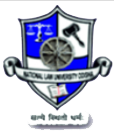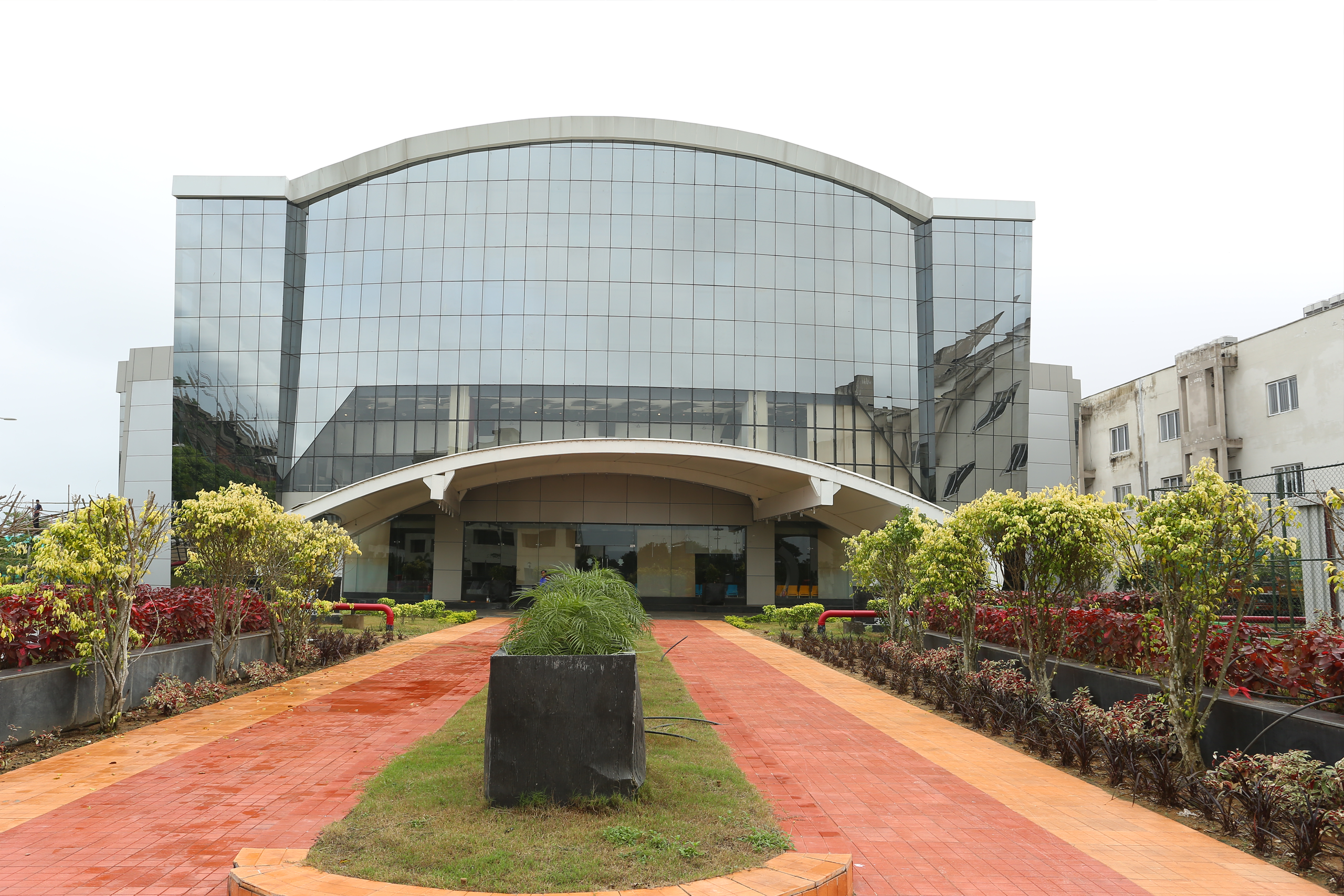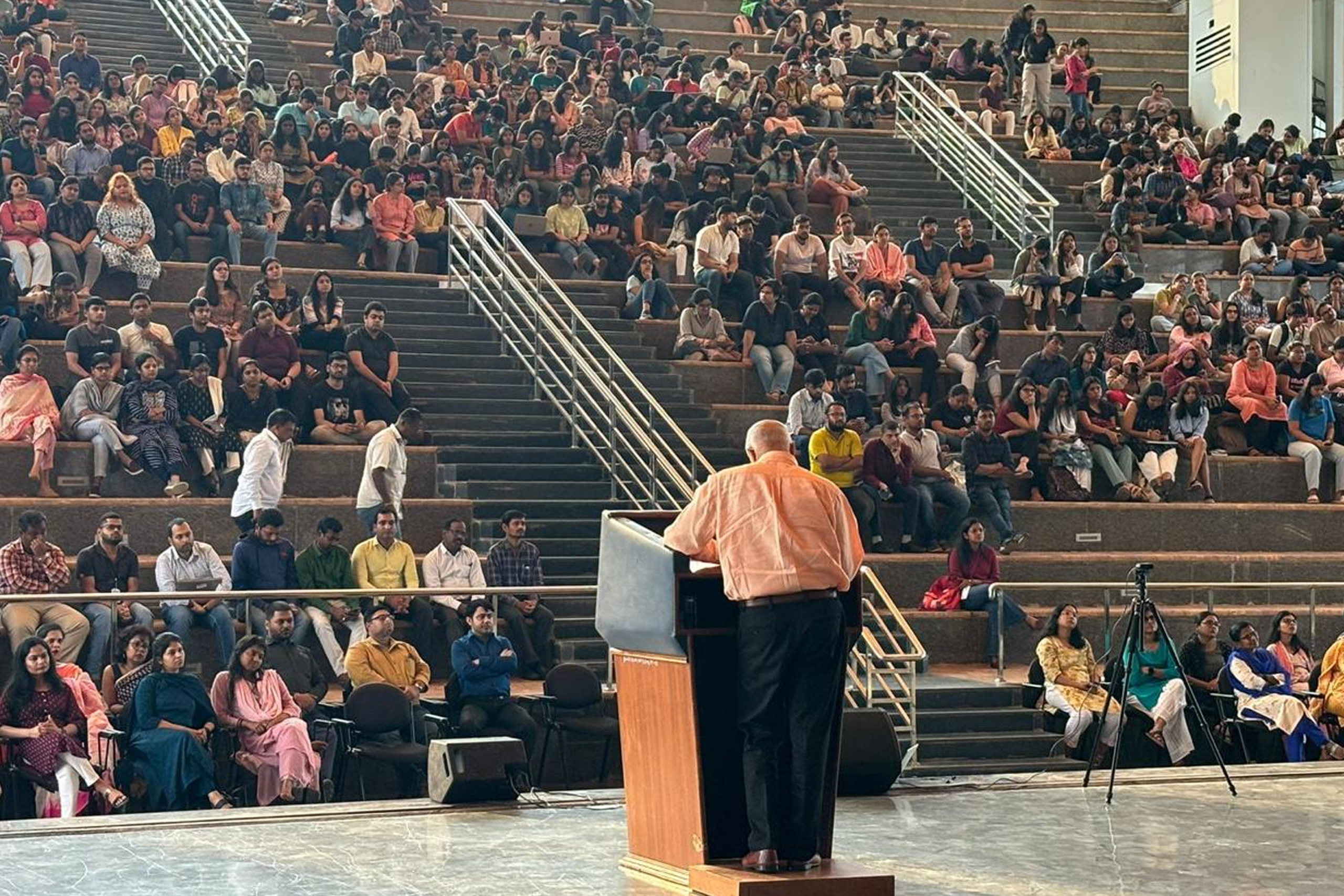News Category: Upcoming Events
One-day workshop on Competition Law organised by the Centre for Competition Law and Policy, NLUO, in association with the Competition Commission of India.
16 Jan 2026
CWL-NHRC One Day Conference On “Inclusive Higher Education as a Human Right: Addressing Gender, Age, and Intersectional Inequalities in Indian Universities” Centre For Women And Law
31st January 2026
Register for the One-Day Seminar on “Inclusive Higher Education as a Human Right: Addressing Gender, Age, and Intersectional Inequalities in Indian Universities” organized by the Centre for Women and Law, National Law University Odisha and sponsored by the National Human Rights Commission (NHRC).
About NLUO: The University was established and incorporated by the National Law University Odisha NLUO Act of 2008, for advanced teaching and research in law. NLUO is recognized under Section 12(b) of the UGC Act 1956 & its degrees are recognized by the Bar Council of India. NLUO is a member of UGC-INFLIBNET and a participant in the National Knowledge Network.
About the Centre (CWL): The Centre for Women and Law (CWL) at National Law University Odisha (NLUO) is a research centre committed to advancing gender justice through interdisciplinary study and action. It serves as a platform for examining social, structural, and legal dimensions of gender equality while promoting awareness and reform. CWL undertakes research projects, training, and capacity-building programmes for organizations and institutions working on women’s rights. Through publications, seminars, and conferences, the Centre fosters dialogue on power, representation, and justice, striving to build a more equitable and inclusive society grounded in constitutional and human rights values.
About NHRC: The National Human Rights Commission (NHRC) of India is an independent statutory body established in 1993 under the Protection of Human Rights Act, 1993 to uphold the dignity, equality, and fundamental freedoms guaranteed by the Constitution of India and international human rights conventions. As the nation’s apex human rights institution, the NHRC serves as an impartial watchdog against violations committed by public authorities or through systemic neglect. Its key functions include investigating complaints, conducting suo motu inquiries, inspecting custodial and detention facilities, reviewing laws and policies, and recommending preventive and corrective measures to ensure accountability and justice. Beyond enforcement, the Commission actively promotes awareness, education, and research on human rights issues through collaboration with academic and civil society organizations.
About the Seminar: The National Seminar on Inclusive Higher Education as a Human Right: Addressing Gender, Age, and Intersectional Inequalities in Indian Universities aims to reframe higher education as a universal and inclusive right. It will explore how gender, age, caregiving roles, and socio-economic factors shape access and participation in academic spaces. Organized by the Centre for Women and Law, National Law University Odisha, the seminar will bring together scholars, policymakers, and practitioners to discuss institutional reforms, intersectional inclusion, and global perspectives on equity in education. Through dialogue, research, and policy engagement, the seminar seeks to advance inclusive educational practices and develop a framework promoting safe, equitable, and empowering learning environments across higher education institutions.
DATE: 31st JANUARY, 2026
VENUE: NATIONAL LAW UNIVERSITY ODISHA (HYBRID MODE)
CALL FOR RESEARCH PAPERS
The Centre for Women and Law, National Law University Odisha invites researchers, academicians, students, and practitioners to submit research papers for the NHRC Sponsored One-Day Seminar.
The broad theme of the seminar is: “Inclusive Higher Education as a Human Right: Addressing Gender, Age, and Intersectional Inequalities in Indian Universities”
Sub-Themes:
- Reframing Higher Education as a Human Right: Recognizing inclusive education as a universal entitlement essential to equality and justice.
- Gendered and Age-Based Barriers in Access and Retention: Addressing systemic inequalities faced by women, elderly learners, and marginalized groups in higher education.
- Institutionalizing Inclusion: Strengthening campus structures through effective implementation of UGC and POSH guidelines.
- Comparative Perspectives on Inclusive Education: Learning from global approaches, particularly experiences from the UK and Global South.
- Voices from the Margins: Bringing forward the lived experiences of caregivers and gender-diverse students to inform inclusive policy reform.
Important Dates
- 15 December, 2025: Last date for submission of full paper
- 05 January, 2026: Date of notification of selected papers for presentation
- 31 January, 2026: Date of seminar
Submission Guidelines
- Submissions must be in .docx format and sent via the Google form (link available in the original brochure).
- Submissions must contain a cover letter with the author’s name, institution, designation, E-mail ID, and contact number.
- Each paper must include an abstract of not more than 250 words.
- The abstract and full paper must be submitted as a single document.
- Paper length must be 4,000 to 5,000 words (excluding footnotes).
- Citations must follow Bluebook 20th/21st edition style.
- Co-authorship is permitted (max 2 authors).
- Plagiarism limit is 10%. A Turnitin report must be submitted.
- Use of AI is strictly prohibited. A Turnitin report must be submitted.
- Authors must send a declaration that the paper is original and has not been published or presented elsewhere.
Registration and Fees
- Online Participation: Rs. 500/-
- Online Paper Presentation (Per Author): Rs. 1000/-
- Offline Participation: Rs. 700/-
- Offline Paper Presentation (Per Author): Rs. 1200/-
Note: All paper presentation payments are to be made after the notification of selected papers.
Note: No accommodation will be provided to in-person attendees.
To know more about the seminar and call for papers, kindly refer to the brochure attached below.
Link for brochure
Should you have any queries, please feel free to contact us at cgs@nluo.ac.in
Double Credit Course on “Animal Law: Perspectives from the Global South”
12th January 2026
About the Course:
Animal law has emerged as a vital field not only within environmental and social justice movements, but also independently, particularly in the Global South where human–animal relations intersect with culture, livelihood, and religion. This course explores the evolution, philosophy, and practice of animal protection laws with a primary focus on India’s legal framework, especially the Prevention of Cruelty to Animals Act, 1960 (PCA), along with comparative insights from other countries in the Global South.
The course is designed as an advanced-level offering for those who completed the Foundation of Animal Law course last year and is open to all students interested in understanding the nuances of animal law and policy in India and beyond.
The sessions will feature eminent academicians, researchers, and practitioners from India, Sri Lanka, Pakistan, and other parts of the Global South, offering a holistic perspective on animal welfare law, policy, and ethics.
Schedule:
12 January – 31 January 2026
6:30 PM – 8:30 PM
Mode: Online
Course Coordinators:
Dr. Sohini Mahapatra, Assistant Professor of Law, NLUO
Dr. Rashmi Rekha Baug, Assistant Professor of Law (Contractual), NLUO
Organized by:
Society for the Advancement of Animal and Environmental Welfare (SAAEW), National Law University Odisha
Registration Fee
The fees payable shall be 1,500/- through SBI Collect. After making the payment, participants must fill out the Google Form and upload the receipt of payment.
Registration Deadline:
30th November 2025
The course brochure has been attached for your kind perusal and dissemination through official platforms.
Link for brochure
1ST CCJHR NATIONAL ESSAY WRITING COMPETITION ON BNSS
31st December 2025
About The Centre For Criminal Justice and Human Rights, NLUO
The Centre for Criminal Justice and Human Rights (CCJHR) at National Law University Odisha is dedicated to research, discussion, and policy engagement on issues at the intersection of criminal law and human rights. The Centre aims to contribute to contemporary debates on criminal justice reform in India by facilitating academic inquiry, capacity building, and student-led initiatives.
About The Competition
The 1st CCJHR National Essay Writing Competition seeks to encourage analytical engagement with the Bharatiya Nagarika Suraksha Sanhita (BNSS), 2023, which replaces the Code of Criminal Procedure, 1973. The competition invites participants to examine the structural, procedural, and technological changes introduced under the BNSS and their impact on India’s criminal justice system.
The competition is open to undergraduate and postgraduate law students across India.
Theme
“The Bharatiya Nagarika Suraksha Sanhita, 2023: Reimagining Criminal Justice in Contemporary India”
Sub-Themes (Indicative)
- BNSS vs. CrPC – Continuity or Change?
- Speedy Trials under BNSS – Aspiration vs. Reality
- Presumption of Innocence in the Age of Media Trials
- Powers of Police under BNSS
- Victim Empowerment in BNSS
- Technology in Criminal Justice under BNSS: From e-FIRs to Digital Evidence
Submission Guidelines & Registration Details
Formatting & Manuscript Requirements
- No identifying information (name, institution, etc.) should appear in the manuscript.
- Co-authorship permitted up to two authors.
- The official cover page (provided upon registration) must be attached.
- Word Limit: 1000 – 1500 words (excluding footnotes, index, bibliography).
- Font: Times New Roman.
- Font Size: 12 for headings and body; 10 for footnotes.
- Spacing: 1.5 (body); 1.0 (footnotes).
- Margins: 1 inch on all sides.
- Citation Style: OSCOLA.
- Speaking footnotes allowed up to 50 words each.
- Plagiarism limit: Maximum 10 percent as per UGC norms.
- AI-generated content is prohibited.
Registration & Submission
- Registration must be completed through the Google Form:
https://forms.gle/UCF3NAygqCFb6Vd9A - The registration fee is to be paid viaICICI Collect (Refer to the Payment Guidelines for the process and fee details)
- Participants will receive aTeam Code after registration, which must be used for the submission.
- Last Date for Registration:December 21, 2025
- Submission Deadline:December 31, 2025
Prize Pool
- 1st Position: ₹8,000
- 2nd Position: ₹5,000
- 3rd Position: ₹3,000
Contact Details
Email: ccjhr@nluo.ac.in
Phone: +91 98453 53404 / +91 72177 56565
Faculty Development Programme
3-9th December,2025
Two-Day National Consultation-cum-Workshop on Tobacco Control Initiatives: From Policy to Practice
14th November 2025
Dinabandhu Sahu Memorial Public Lecture on Good Governance and Rajdharma: An Analysis of Law and Justice Dispensation by Reflecting on the Past.
30th October 2025
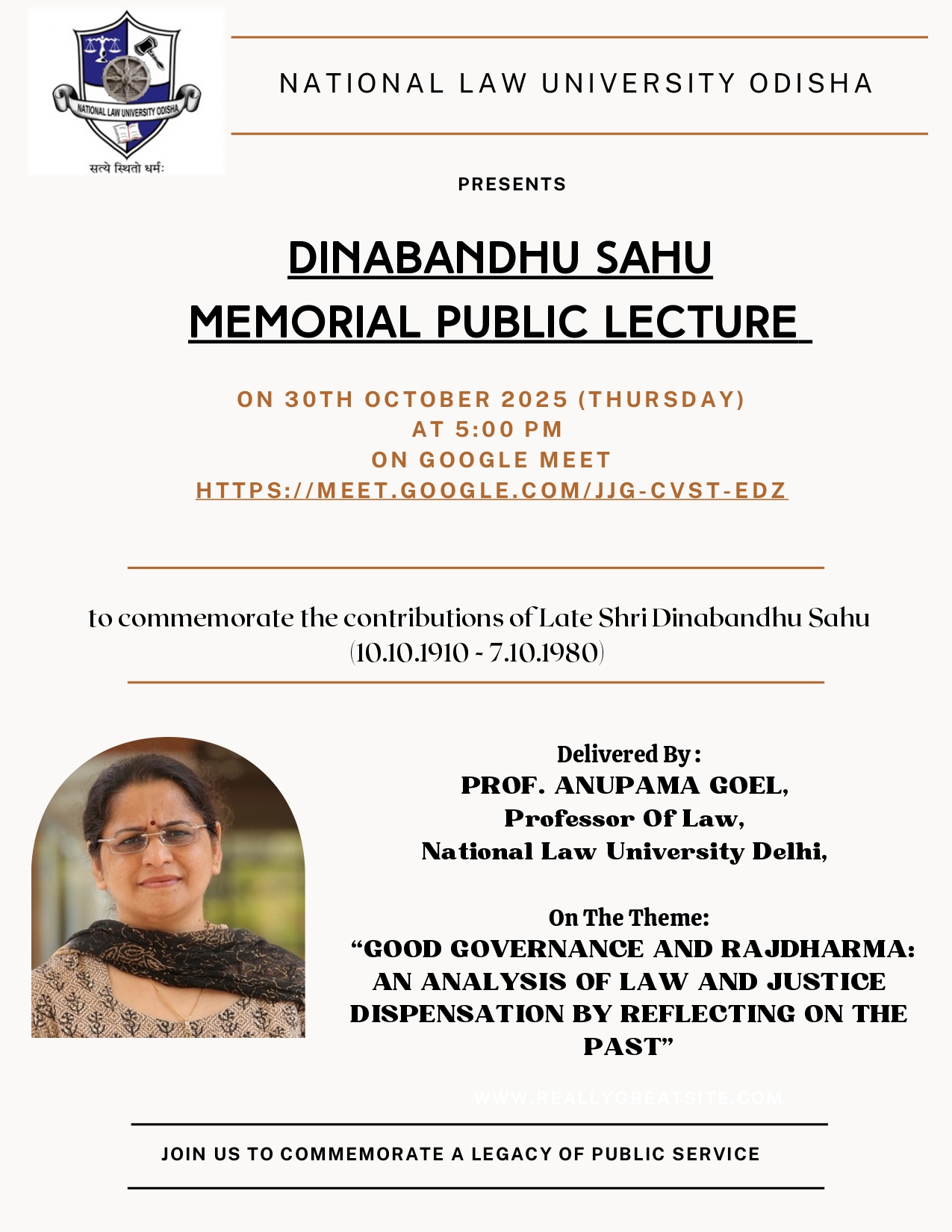
About the Public Lecture
National Law University Odisha is organising the Dinabandhu Sahu Memorial Public Lecture to commemorate the invaluable contributions of Late Shri Dinabandhu Sahu in the public sphere both within and outside the Government dedicated to the social, educational, and economic advancement of the people and the overall development of the nation.
The lecture will be delivered by Prof. Anupama Goel, Professor of Law, National Law University Delhi, on the theme: “Good Governance and Rajdharma: An Analysis of Law and Justice Dispensation by Reflecting on the Past.”
Details of the Event:
Date: Thursday, 30th October 2025
Time: 5:00 PM
Mode: https://meet.google.com/jjg-cvst-edz
Special Invited Lecture by Prof Enakshi Ganguly on “Evolving Landscape of Child Rights and a Life Dedicated to Child Rights”
15th, Oct 2025
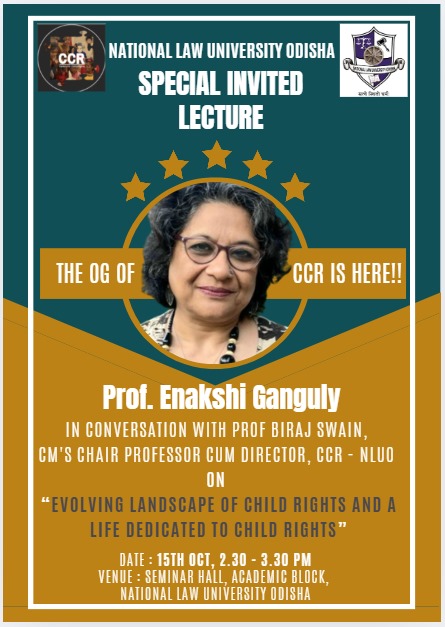
About the Special Invited Lecture:
Centre for Child Rights (CCR) – National Law University Odisha (NLUO) is honoured to host a special invited lecture titled “Evolving Landscape of Child Rights and a Life Dedicated to Child Rights” by Prof Enakshi Ganguly, the OG of CCR-NLUO and globally renowned Human Rights and Child Rights Champion, Executive Director of Housing and Land Rights Network, Co-founder and former Executive Director, HAQ Centre for Child Rights and Honorary Professor at NLUO. In this interactive session, she will be in conversation with Prof Biraj Swain, CM’s Chair Professor cum Director, Centre for Child Rights (CCR) – NLUO, reflecting on her lifelong journey in advancing justice and protection for children. The event aims to inspire students, researchers and participants to engage with emerging child rights challenges and innovations.
UNRAVELLING THE FIRST ISSUE OF CCR’S FLAGSHIP JOURNAL POST-INDEXATION
15th, Oct 2025
About the Event
The Centre for Child Rights (CCR), National Law University Odisha, with the support of Child Rights and You (CRY), is unravelling the first issue of the Centre’s flagship journal – Journal on the Rights of the Child of National Law University Odisha, post-indexation on 15th October 2025. The centre is also releasing its Bi-monthly Newsletter in the event that is completely designed and managed by CCR Students’ Body. The event will feature eminent dignitaries including Hon’ble Justice Savitri Ratho, Judge – Orissa High Court and Chairperson – JJC, Orissa High Court, Prof Enakshi Ganguly, globally renowned Human Rights and Child Rights Champion, Executive Director of Housing and Land Rights Network, Co-founder cum former Executive Director, HAQ Centre for Child Rights and Honorary Professor at NLUO, Ms Puja Marwaha, Chief Executive Officer, Child Rights and You (CRY) along with child rights champions from UNICEF and others.
venue
Seminar Hall, 2nd Floor, Academic Block
Time
5.00 PM to 7.30 PM
